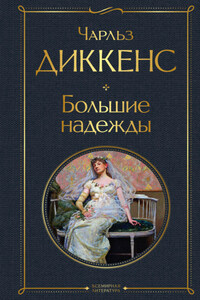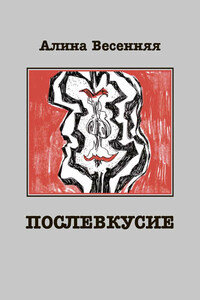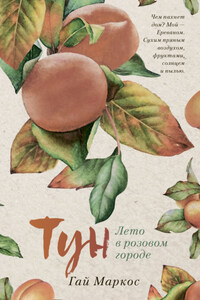CHAPTER I
IN WHICH MR. PODMORE DECLARES THAT HE IS NOT ACCOUNTABLE
FOR HIMSELF
The scene opens in the locality of Soho-that labyrinth of narrow paths which always wears a depressed and melancholy air, as if it had just gone into mourning. If Soho ever had bright days in the shape of a sunny youth, it must have been very long ago. No trace of them remains; a settled sadness lies upon its queer narrow thoroughfares now and for evermore. The very voices of its residents are more subdued and resigned than other voices are in other places.
No locality in London contains so strange a variety of life's phases as may be found in Soho. And yet it is full of mystery, and its ways are dark and secret. Men and women may live there for years, and their antecedents and present modes of life shall be as little known as if they lived in the most remote corner of the earth. Soho is the molehill of the Great City. You may have a thousand pounds a year and spend it in Soho, and your neighbours not only shall not notice it, but shall be as utterly indifferent to you as if you lived on tenpence a day-as hundreds of poor fellows are doing at this present moment. Hard-working mechanics live there; weary-eyed needlewomen; libertines; ballet-girls, whose salary is twenty shillings a week, and who wear furs and false hair and diamond rings; and man-owls, who sleep by day and prey by night. On the doorstep of some of the houses in which these persons dwell, children in the afternoon play with marbles and broken pieces of crockery. Here is a group composed of half a dozen dirty-stockinged little girls, who look at you shyly as you pause before them, and put their fingers in their mouths and giggle surreptitiously. Speak to this one-a clear gray-eyed girl of some eight summers, with intelligent well-formed face and beautiful light hair. Question her, and bribe her with pence, and you may obtain from her the information that she lives in the next street, at the baker's, on the second-floor back; that mother and father live there, of course; that seven brothers and sisters live there, making a family party of ten in all; that they have only one room, in which mother cooks the meals, and in which they all sleep; and that sometimes Uncle Bob pays them a visit, and eats and sleeps with them for a few days. Wondrous is the inner life of Soho. It is the abode of much seediness and much suffering. Many a poor gentleman eats his bread-and-dripping there, and, if he can afford it, cooks his herring there, and thinks sadly of times, gone by, when his life had its days of sunshine. He looks forward yearningly to the time to come; but rich as is the harvest that grows in the fields of Hope, the chance of its ever being gathered is a dismal one indeed. The poor gentleman, ill-fed, ill-dressed, reads faded letters in his garret, kisses pictures there, and dreams hopefully of the future, which contains for him nothing but a grave.
In one of Soho's quiet streets-belonging to that peculiar family of streets which are invariably round the corner-is a tallow-chandler's shop, ambitiously designated by its proprietor, J. Gribble senior, as an oil and colour warehouse. This designation glares at you from over the blue shopfront in yellow letters-glares at you defiantly, as if it is aware beforehand that doubt of its assertion must necessarily rise in your mind. The window of the shop, in which the stock is displayed, is dusty and dirty, and everything behind it has a faded and second-hand appearance. In a corner of the window is a sheet of note-paper, on which is written-in feeble and uncertain letters-"Down with Cooperation!" There is an exception, however, to the generally dusty aspect of the window. In a centre pane, which is kept clean, is a square of blue cardboard, on which the following announcement is neatly written, in yellow round-hand:
J. GRIBBLE JUNIOR,
PROFESSOR OF ANATOMY
Broken Ribs or Bones
Carefully Re-set or Neatly Mended;
In fact
The Whole Frame speedily Recovered on Moderate Terms
J. G. junior informs the neighbouring Gentry that he has had a most Extensive Practice, and that, although he has had
THOUSANDS OF PATIENTS
under his Treatment, he has never turned out one Incurable.
J. G. junior has had Numerous Patients brought to him Partly Deformed or Weakened through Improper Treatment, and has in a very few Hours invariably restored to them their Original Strength.
Consultations, Examination, and Operations performed Daily
from 8 a.m. till 10 p.m
Patients admitted on application, and without the vexatious delay which is occasioned by references being required
NO CURE, NO PAY. ADVICE TO ALL GRATIS
J. G, junior's Royal Umbrella and Parasol Hospital, Second-floor Front.
The stock has not a very inviting appearance: comprising, for the most part, candles, mouse-traps, balls of twine, bars of yellow soap-so arranged as to be suggestive of prison-windows-and limbs and wings and dead bodies of flies. These latter seem to be the peculiar attribute of shop and parlour windows in Soho. One might almost be pardoned for the supposition that every discontented fly in London makes it a practice to go to Soho and die.














